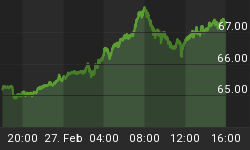At a time when the Western world is doing its best to kill free trade, some emerging markets are doing the exact opposite: fostering continent-wide enhanced trade by expanding free trade. Strange as it might seem, Africa, a continent commonly associated with seemingly unending civil strife and poverty, will soon rival the WTO and the EU while earning its stripes as home to the world’s largest free trade area.
On May 30, Gambia (or the Gambia if you will) will join the Africa Continental Free Trade Area, or AfCFTA, making it the world’s largest free trade area both by area and population. Gambia is set to become the newly-minted trade bloc’s 22nd member to ratify the trade treaty in a continent of 55 disparate countries.

(Click to enlarge)
Record numbers
Africa is the planet’s second largest continent by land mass after Asia and home to 1.2 billion souls--more than double the tally by the European Union or NAFTA.
The continent’s diversity rivals any other region, but sadly it remains deeply divided. You can thank colonialism for that, with most African nations still doing far more business with their former colonial masters and the western world than their next-door neighbors. Bear in mind that Britain, France, Spain, Portugal, Italy, Belgium and the Dutch divvied up nearly the entire continent between themselves.
Related: Warren Buffett Is Betting Big On Energy Stocks
Thankfully, that might now change thanks to the new trade treaty. So far, nearly all countries on the continent have appended their signature to the treaty, with Nigeria being the only big exception.
Other than enjoying massive reach, AfCFTA also stands out for being able to galvanize so much support within short notice: the idea for the trade bloc was only mooted by Rwandese president, Paul Kagame, in 2012 and was signed into existence on March 2018 in Kigali, Rwanda’s capital. Just 15 months later, the agreement has been able to secure the minimum threshold of 22 ratifications.
As Grant Harris, CEO of Harris Africa Partner, has put it: "What’s been really impressive is how quickly they’ve agreed to and then ratified the deal.Now the real world begins in terms of how issues are worked through in practice."
Ok, while there is no denying the impressive spirit of co-operation, there are still issues that need ironing out. But first things first, what does AfCFTA hope to achieve? After all, there is no shortage of trade bodies on the continent, including large ones such as 19-member COMESA (Common Market for Eastern and Southern Africa); 16-member SADC (South African Development Community) and 15-member ECOWAS (Economic Community for West African States) not to mention a few that have gone bust.
When African heads of government agreed to put their differences aside four years ago, the main idea was to create a continental free trade area that would bring together 1.2 billion people with a combined GDP of more than $2 trillion. The draft agreement commits member countries to remove tariffs on 90 percent of goods, with the remaining 10 percent on ‘sensitive items’ to be phased out later.
The AfCFTA agreement also aims to liberalize services and tackle non-tariff barriers which hamper free trade between African countries. These non-monetary barriers include, among others, long delays at the border.
Eventually, they envisaged free movement of people and even the use of a single currency such as the euro in the free trade area.
Africa certainly needs such an arrangement, probably more than any other trade region. Intra-continental trade is still very limited, with UNCTAD (United Nations Conference on Trade and Development) estimating that it made up a mere 10.2 percent of the continent’s total trade in 2010.
New trade order
Africa though is under no illusions and knows that AfCFTA will not solve its trade problems overnight. After all, there’s a reason why most of Africa’s trade is directed outside the continent: according to UNECA (United Nations Economic Commission for Africa ), sale of fuel still represents more than half of Africa’s exports to non-African countries with manufactured goods making up only 18 percent of exports. It’s estimated that the continent will require at least $50 billion per year in infrastructure investments to open up its internal markets. Further, the continent needs to rapidly shore up its manufacturing and services industries.
Nevertheless, the Western world, including China, can glean a few lessons from Africa. After all, it’s free trade tha has made them what they are today by allowing their workers to specialize in goods and services they could produce more efficiently and at lower costs than other regions then export the same to the rest of the world.
As for China, it should consider joining the Comprehensive and Progressive Agreement for Trans-Pacific Partnership (CPTPP), an improved version of the defunct Trans-Pacific Partnership that was launched in late 2018, to avoid relying too much on a few trade partners.
By Alex Kimani for SafeHaven.com
More Top Reads From Safehaven.com:
















